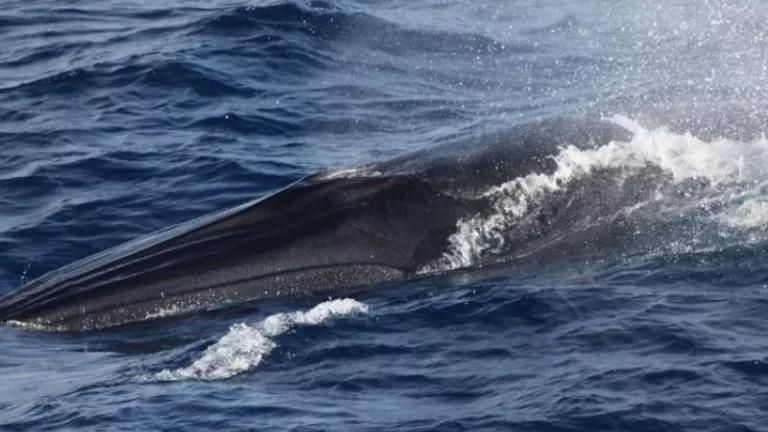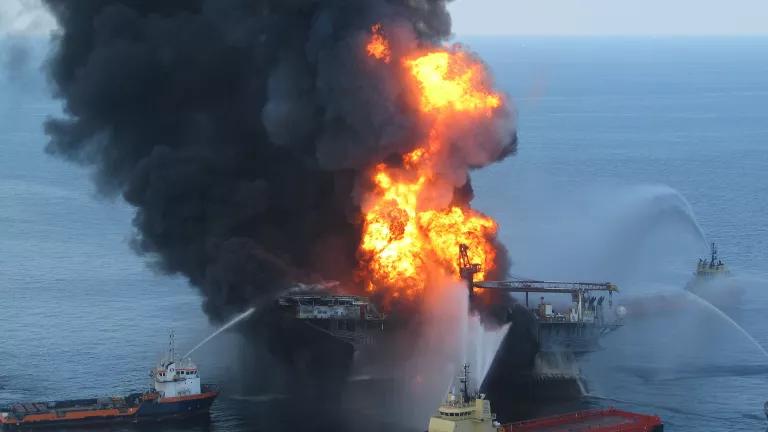Blake Plateau: A Biodiversity Refuge in a Warming World
As ocean temperatures rise, parts of the Blake Plateau will likely provide crucial refuge for deep-sea, reef-building corals and marine species.

The Blake Plateau’s deep-sea, cold-water corals provide habitat for various marine species, including crustaceans. | Credit: NOAA Office of Ocean Exploration and Research, 2019 Southeastern U.S. Deep-sea Exploration.
Our ocean has borne the brunt of warming temperatures around the world. It has absorbed 93 percent of the heat trapped by greenhouse gases since the mid-20th century, causing warmer, more acidic waters. This acidification has a direct impact on shallow water coral reefs, preventing them from building a strong skeleton. Ever hotter waters are also leading to coral bleaching – a process in which stressed tropical shallow waters corals expel their symbiotic algae which benefit the coral by producing food. Due to these rising temperatures, the ocean is experiencing its fourth global coral bleaching event on record.
Tropical coral reefs are a biodiversity hub and host an estimated 950,000 species around the world. Unfortunately, many shallow water coral reefs have experienced a series of die-offs due to multiple stressors, including recent and worsening marine heat waves. Last summer, ocean temperatures just offshore of Florida reached hot tub levels with an astonishing 101.1 degrees Fahrenheit – potentially the warmest ocean temperature ever recorded.
It’s clear that tropical shallow water coral reefs in the southeast are in a dire state due to climate change and warming waters. Although less is known about the impacts of warming waters to deep-sea corals, scientists are concerned and have begun to identify areas that are likely to serve as climatic refugia to these species in a warming world.
Climate refugia are areas that are more buffered from the environmental changes brought on by climate change, making them potential strong-holds for climate vulnerable species to continue to thrive. Recent research has shown that some of the deeper areas of the Blake Plateau are predicted to provide such a refuge. In particular, the Stetson/Richardson Complex and the Central Blake Knolls are likely to maintain amenable temperatures for deep-sea coral species as the ocean warms. Scientists believe that such climate refuges can help to repopulate ocean areas with climate-vulnerable communities following climate disruptions.
The potential for climate refuges, along with the scale and diversity of the Blake Plateau’s corals make this region prime for conservation. Just over a year ago, the Biden administration released its Ocean Climate Action Plan which laid out a series of agency actions for ocean climate solutions. The plan includes the expansion of marine protected areas – ocean habitats set aside mainly for conservation – identifying them as an important tool for “sustaining fisheries, and increasing biodiversity, which fosters climate resilience.”
Scientists worldwide have called for the creation of marine protected areas to help restore ocean health, since highly and fully protected areas have been found to be more effective than other types of protections at conserving biodiversity, protecting ecosystem structure and function, and enhancing ecosystem resilience in the face of climate change. Key ecosystems on the Blake Plateau should take priority for conservation as marine protected areas, especially considering that cold-water, deep-sea coral habitats are underrepresented when it comes to the distribution of strong protected marine protected areas in U.S. waters.
Right now, the Blake Plateau is largely pristine and fosters a thriving community of fish, birds, mammals, and more. We have a rare opportunity to establish long-term protections for marine species and communities that are at risk of climate change, helping to ensure their persistence into the future. The unprecedented scale and diversity of Blake Plateau’s deep-sea coral habitats make it an ideal location for a planned climate refuge and science reserve.



